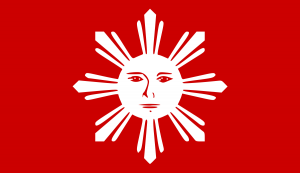Difference between revisions of "Language/Tagalog/Vocabulary/Family"
| Line 2: | Line 2: | ||
[[File:Tagalog-Language-PolyglotClub.png|thumb]] | [[File:Tagalog-Language-PolyglotClub.png|thumb]] | ||
'''Family,''' or '''''pamilya''''' in Tagalog, plays a significant and vital role in an individual's life within Filipino culture. The Filipino family is known for its inseparability, inclusiveness, and tight-knit bonds, often having up to four generations living together in a single household. | '''Family,''' or '''''pamilya''''' in Tagalog, plays a significant and vital role in an individual's life within Filipino culture. The Filipino family is known for its inseparability, inclusiveness, and tight-knit bonds, often having up to four generations living together in a single household. Whether there are three or thirteen people under the same roof, everyone is cherished and respected, and it is not uncommon for family members from all over the world to return home for Christmas or other special occasions. Such reunions can easily gather more than twenty or thirty people, and announcements for upcoming gatherings can occasionally be heard on the radio. | ||
---- | |||
After learning about family in Tagalog, you might also be interested in exploring other related topics, such as [[Language/Tagalog/Vocabulary/Science-and-Technology|Tagalog Science and Technology terms]], [[Language/Tagalog/Vocabulary/Colors|Tagalog color vocabulary]], and [[Language/Tagalog/Vocabulary/Hobbies-and-Interests|Tagalog hobbies and interests]]. | |||
__TOC__ | |||
==Family words in Tagalog== | ==Family words in Tagalog== | ||
{| class="wikitable" style="border:5px outset #00bfff; border-top:2px ridge #808080; border-radius: 9px; font: normal 19px/150% Times New Roman, Times, serif; padding:10px;" | {| class="wikitable" style="border:5px outset #00bfff; border-top:2px ridge #808080; border-radius: 9px; font: normal 19px/150% Times New Roman, Times, serif; padding:10px;" | ||
Revision as of 16:53, 9 April 2023
Family, or pamilya in Tagalog, plays a significant and vital role in an individual's life within Filipino culture. The Filipino family is known for its inseparability, inclusiveness, and tight-knit bonds, often having up to four generations living together in a single household. Whether there are three or thirteen people under the same roof, everyone is cherished and respected, and it is not uncommon for family members from all over the world to return home for Christmas or other special occasions. Such reunions can easily gather more than twenty or thirty people, and announcements for upcoming gatherings can occasionally be heard on the radio.
After learning about family in Tagalog, you might also be interested in exploring other related topics, such as Tagalog Science and Technology terms, Tagalog color vocabulary, and Tagalog hobbies and interests.
Family words in Tagalog
| Tagalog | English |
|---|---|
| Ina/Nanay | Mother |
| Ama/Tatay | Father |
| Anak | Child |
| Kapatid | Sibling |
| Kuya | Elder Brother |
| Ate | Elder Sister |
| Panganay | Firstborn |
| Bunso | Youngest Child |
| Lola | Grandmother |
| Lolo | Grandfather |
| Tiya | Aunt |
| Tiyo | Uncle |
| Sanggol | Baby |
| Magulang | Parent |
| Ninuno | Ancestor (literary) |
- Note: Most of the words above are generally used in an affectionate tone, even when using them to address strangers. Filipinos usually call people on the street, or most of the time, people behind the counter, Kuya, Ate, Lola, or Lolo as a sign of politeness and endearment. Nanay and Tatay are also the affectionate versions of Ina and Ama, respectively.
Practice phrases about the family members in Tagalog
| Tagalog | English |
|---|---|
| Si Meri ang aking Ina | Meri is my mother. |
| Tatay ko si Jun | My dad is Jun. |
| Ang kuya ko ay nasa ibang bansa | My brother is abroad (Lit. Brother mine is on other country). |
| Pumanaw na ang aking dalawang lolo | My two grandfathers are already dead. |
| Anak mo ba si Berto? | Is Berto your son? |
| Pupunta ba si Bunso sa ating pista? | Is the youngest child going to our fiesta? |
Videos in Tagalog about the family members=
FAMILY MEMBERS in Tagalog (Filipino)
FAMILY MEMBERS IN TAGALOG | Basic Tagalog Language
FAMILY MEMBERS AND ETC. IN TAGALOG W/ HELPFUL TIPS
Authors
Videos
FAMILY MEMBERS IN TAGALOG - YouTube
Other Lessons
- Fruits
- Animals
- Food
- Clothes
- Counting and Numbers
- Feelings and Emotions
- Shapes
- Count from 1 to 10
- Animal

